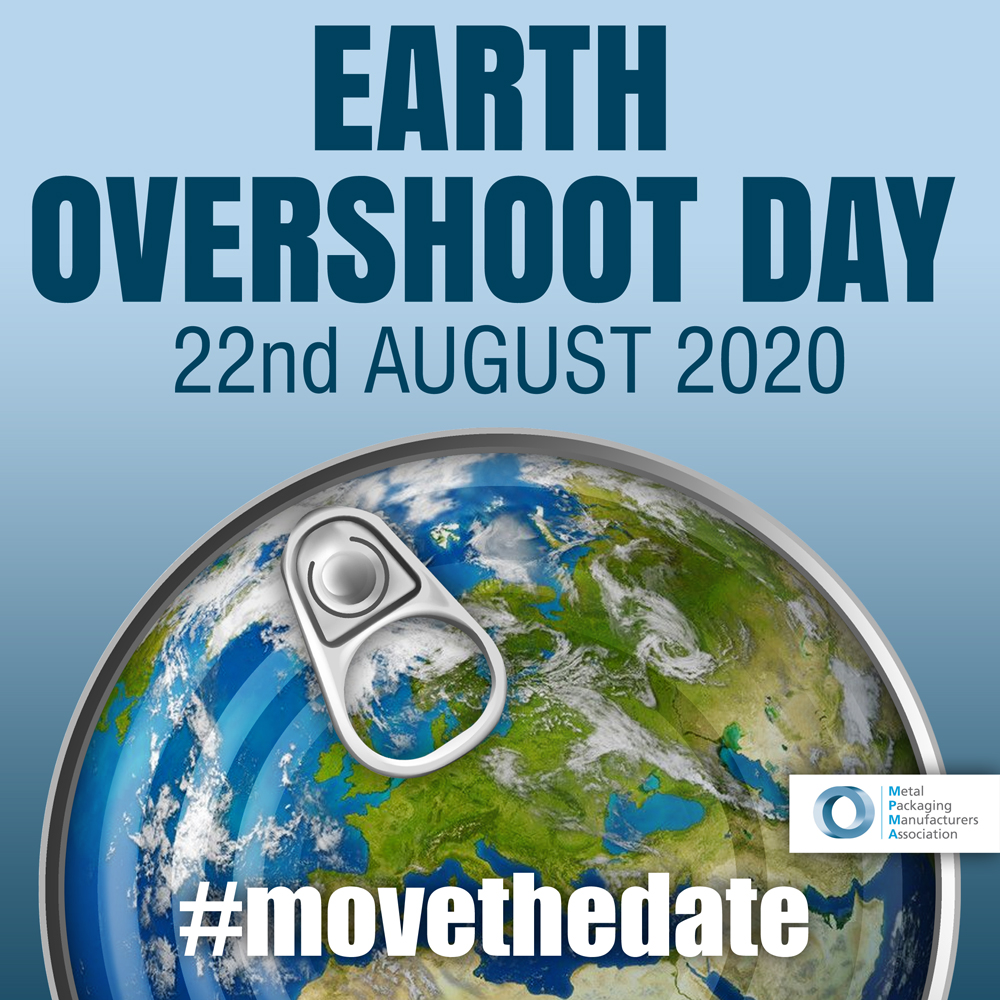22 August is this year’s Earth Overshoot Day #movethedate
What is Earth overshoot Day?
Earth Overshoot Day marks the day each year when humanity has already consumed a full a year’s worth of the planet’s resources. This year, the date falls on 22nd August, three weeks later than previous years, reflecting the impact of the coronavirus pandemic, but sadly still some four months premature.
Calculated by the Global Footprint Network, an international research organisation that works towards reducing climate change, the date is determined by dividing the amount of ecological resources Earth is able to generate in a year (it’s biocapacity), by the demand for resources that year (humanity’s ecological footprint), and multiplying it by 365.
The #movethedate movement is inspired by Earth Overshoot Day and looks at ways in which every individual and organisations can reduce their ecological footprint to help push the date by which we consume a full year’s resources further back each year, thus helping to achieve a sustainable future.
#Movethedate
Changes in consumption and carbon emissions, deforestation, food demand, energy usage and wasted resources all impact on global biocapacity. As individuals, it’s often very difficult to see how we can make a difference by our own actions. However, the #Movethedate campaign shows us that if we each make small changes in what we do and how we do it, collectively we can make a real difference and contribute to worldwide positive changes.
Positive steps can be as straightforward as simply using your car less, or ideally not using it at all for short journeys, taking fewer flights, going an extra year or two before replacing a piece of technology such as your mobile phone, or even getting a possession repaired rather than binning it and replacing it.
We can also take positive steps in the kitchen as well. Reducing food waste is one such step. Canned food can help us reduce food waste through its long shelf life, lasting up to three years while still retaining all the nutritional value of its contents.
Canned foods also utilise less energy when eaten hot given that they are heated from room temperature rather than from chilled or frozen. Furthermore, given that canned food does not require refrigerating or freezing either during transit to supermarkets or in storage in-store or at home, all the extra energy and carbon associated with having to keep products cold is avoided.
As consumers, we can also make a difference by choosing to purchase products in truly recyclable packaging so we can be sure that the material can be reused and so help reduce the demand for primary material.
Metal packaging is a good example of a truly recyclable form of packaging. Metal is classified as a permanently available material, that is to say, it can be endlessly recycled without loss of quality.
This means that once the ore is dug out of the ground and converted into metal for the first time, as long as we look after it, we will have it forever. This makes it really important that each individual can or tin is collected and recycled.
Cans enjoy among the highest recycling rates of all packaging materials: 82.5% of steel packaging and 74.5% of aluminium beverage cans are recycled in Europe. It is also estimated that something like 80% of all metal ever produced in the world is still available for use.
Other food based activities that can contribute to pushing the date further back include eating less meat in favour of more plant-based meals, so in recognition of Earth Overshoot Day, why not try this plant–based supper using only food in cans?
Created by Masterchef finalists Billy & Jack specifically for Canned Food UK, it encapsulates all the above sustainability benefits of canned food.
1.Starter – Crispy fried artichokes with a broad bean yoghurt dressing
“Our crispy artichokes and fresh broad bean and yoghurt dressing are a perfect match. Great for a hot day, or even a cold day when you need some summer vibes,” says Jack. Recipe here: www.cannedfood.co.uk/recipe/billy-jacks-italian-fried-artichokes
2. Main – Vegan Mushroom Wellington
Delicious mushroom, lentil and spinach Wellington with caramelised onion gravy and roast potatoes. Perfect for an alternative to a traditional roast!
Recipe here: www.cannedfood.co.uk/recipe/vegan-mushroom-wellington
3.Dessert – Vegan Pavlova with cherry sauce
A delicious Vegan Pavlova using chickpeas to create a creamy meringue base.
Recipe here: www.cannedfood.co.uk/recipe/billy-jacks-vegan-pavlova-boozy-cherry-sauce

